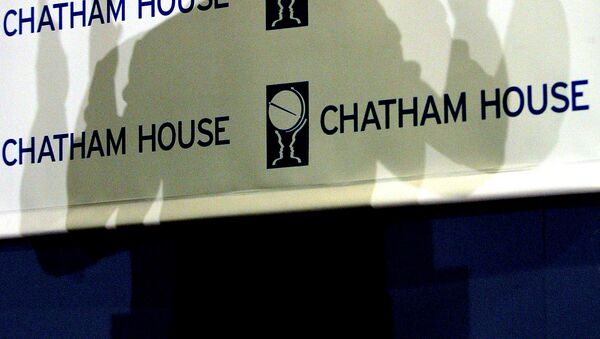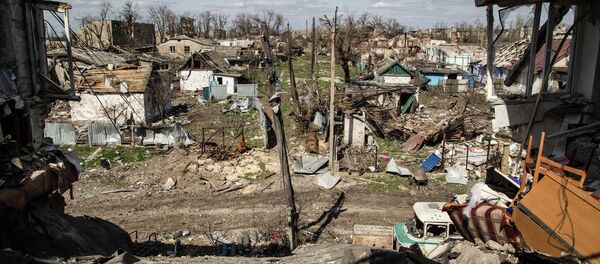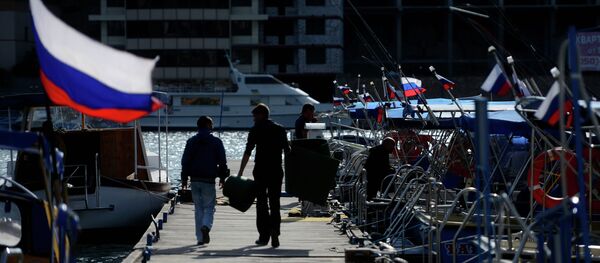According to Russian lawmakers, the report by the Chatham House reveals the true West's plans in regard to Russia.
"This is a revelation of true plans which the West is making in regard to Russia. Nobody is going to lift any sanctions. They [Western countries] instigated a war for a reason, an undeclared war, but a sluggish, information-coercive, the military part has not fully begun yet," Russian parliamentarian Franz Klintsevich noted.
Vasily Likhachev, a member of the Russia's State Duma's Committee on CIS Relations, said the Chatham House report reminded him of Cold War-era reports, meant to mislead western governments, above all their foreign ministries.
“Such reports discourage the western countries from doing business with Russia,” Likhachev said.
“People just close their eyes, plug their ears and are no longer able to soberly analyze what is really happening,” he added.
The “Russian Challenge” report was written by the Royal Institute’s experts on Russian and Eurasian affairs, Keir Giles, Philip Hanson, Roderic Lyne, James Nixey, James Sherr and Andrew Wood.
The authors underscore the need to strengthen NATO as a key instrument of “containing” Russia, to counter the “Kremlin propaganda” and recommend maintaining the anti-Russian sanctions until the complete settlement of the crisis in eastern Ukraine takes place.
The experts urge “to find better ways to communicate to the Russian people that it is in its long-term national interest to be a part of a rules-based Europe, not an isolated regional hegemon.”
“NATO must retain its credibility as a deterrent to the Russian aggression. In particular, it needs to demonstrate that limited war is impossible and that the response to ‘ambiguous’ or ‘hybrid’ war will be robust.”
The Chatham House experts also advise supporting Ukraine and other post-Soviet republics and keeping the anti-Russian sanctions in place.
“It is self-defeating to link the lifting of sanctions to implementation of the poorly crafted and inherently fragile Minsk accords,” they insisted.




